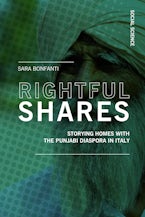Whether it is the binding of shattered bones or the creation of herbal remedies, human agency is a central feature of the healing process. Both archaeological and anthropological research has contributed much to our understanding of the performative aspects of medicine. The papers contained in this volume, based on a session conducted at the 2010 Theoretical Archaeology Conference, take a multidisciplinary approach to the topic, addressing such issues as the cultural conception of disease; the impact of gender roles on healing strategies; the possibilities afforded by syncretism; the relationship between material culture and the body; and the role played by the active agency of the sick.
Acknowledgements
Introduction
(Effie Gemi-Iordanou, Stephen Gordon, Robert Matthew, Ellen McInnes,
Rhiannon Pettitt)
1. Early Neolithic Shamans? Performance and Healing at Hambledon
Hill, Dorset
(Ffion Reynolds)
2. Before Hippocrates: Healing Practices in Ancient Egypt
(Roger Forshaw)
3. Who is performing what and for whom? The Dedication, Construction
and Maintenance of a Healing Shrine in Egypt
(Jane Draycott)
4. Disease, Sin and the Walking Dead in Medieval England, c.1100-1350:
A Note on the Documentary and Archaeological Evidence
(Stephen Gordon)
5. Pilgrimage, Performance and Miracle Cures in the Twelfth-Century
Miracula of St Æbbe
(Hilary Powell)
6. Gendered Attitudes Towards Physical Tending Amongst the Piously
Religious of Late Medieval Sweden
(Johanna Bergqvist)
7. The Rattlesnake and the Otter: Anthropology, Gender, and contraception
among the Niitsítapi (Blackfoot) in the 1930s
(Kristin Burnett)
8. Re-Covering the Hiroshima Maidens
(Amanda Jane Graham)
9. Writing Stones and Secret Shrines: An Exploration of the Materialisation
of Indigenous and Islamic Belief within West African Spiritual Medicine
(Bryn Trevelyan-James)
10. A Note on the Ethnomedical Universe of the Asante, an Indigenous
People in Ghana
(De-Valera Botchway)
11. Spirituality in Knowledge Production and the Practice of Traditional
Herbal Medicine among the Yoruba People in Southwest Nigeria
(Agunbiade Ojo Melvin)











